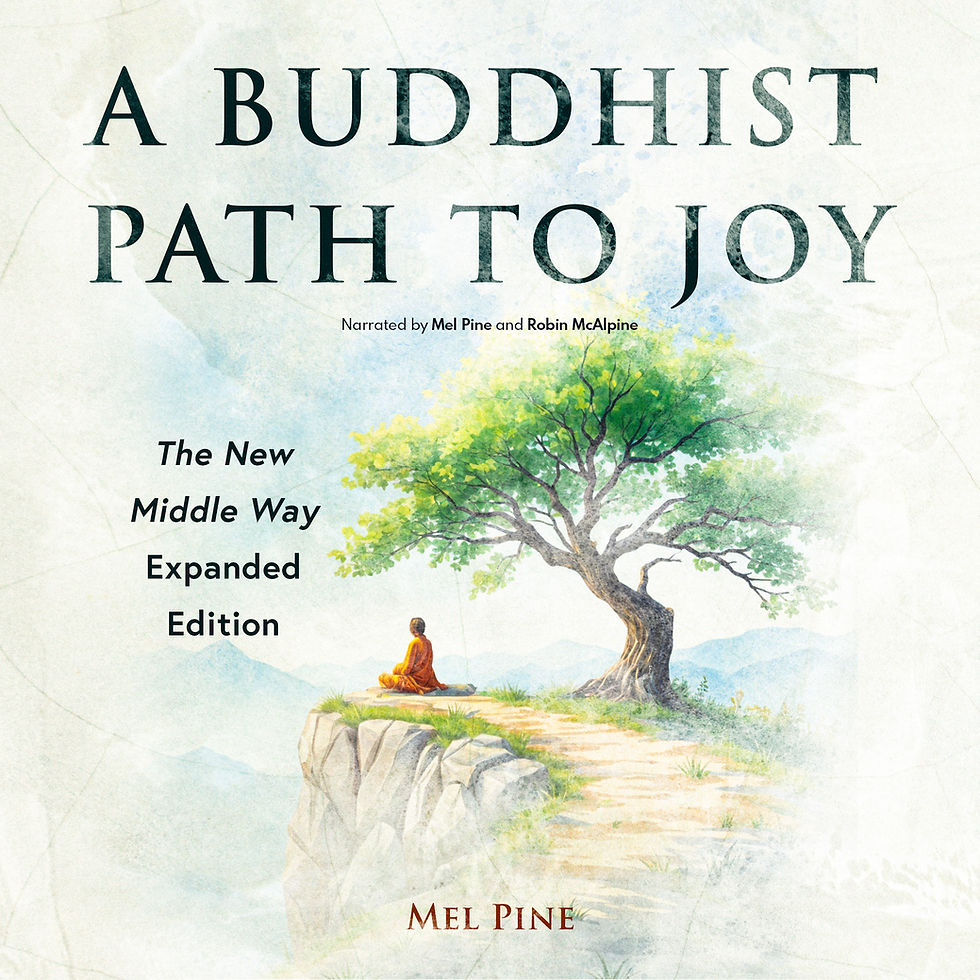The Four Thoughts That Turn the Mind Toward Awakening
- Mel Pine
- Jul 1, 2025
- 3 min read

In early 2023, I began the daily practice that brought me to deep joy. It’s called Nectar of the Path, composed by Yongey Mingyur Rinpoche. Part of it involves reflecting on the Four Thoughts that Turn the Mind, the first of which I mentioned in a post three days ago. Here’s each of them, quoted from the liturgy, with comments from me:
Seeing its many wonderful qualities,
I rejoice and delight in this human life.
From a Vajrayana Buddhist perspective, a human life is a rare opportunity to reach Enlightenment, but that’s not what I reflect on here. I realize how much I enjoy taking in that tree outside my window, watching the loving family across the street, the chickens crossing the road (yes, they do that here, but don’t ask me why) — all the simple things, not to mention my love for my wife, our son, the rest of our family, and for my teachers and sangha.
Like waves in the ocean, all things are impermanent.
I will accept whatever happens and make it my friend.
At some point early in life, we all learn intellectually about impermanence. But Buddhist practice is to absorb that understanding deeply. Of course, we’ll mourn when a loved one dies and be saddened when the old tree in our yard needs to be replaced, but if we go through life expecting everything to stay the same, we’ll go through life in a state of constant disappointment and dissatisfaction.
You’re likely to balk at the last four words, but I can attest that every misfortune in my life has made me a better, wiser, more compassionate person. That’s what those words mean.
When causes and conditions come together, a result is sure to follow,
So I will do my best to help others and engage in positive deeds.
The word is not used in these two lines, maybe because it is so often misused, but this is the real Buddhist meaning of karma. Everything that happens is a result of causes and conditions, and everything we do contributes to causes and conditions. As I’ve said in previous posts (here and here for more details), I believe all people and things are connected in a sea or field of quantum particles, but the law of cause and effect applies even if I’m wrong about that.
The suffering of beings is mainly produced by the mind.
I must free myself from my self-created bonds.
Notice the words “mainly” in the first line and “self-created” in the second. I’m sorry to break this to you, but practicing Buddhism will not eliminate all your suffering. You won’t completely escape the suffering of pain and illness. You’ll suffer when a loved one dies. Maybe you’ll suffer less if you accept the inevitability of such events, but you will suffer. The self-created bonds referred to here are a bit different.
Those bonds are attachments to our wants and our don’t-wants. We humans tend to think that a new car, a new job, a promotion, a new home, or a new love interest will make us happy. If we don’t get what we want, we’re crushed. If we do, we feel some relief for a while but then start craving the next thing. On the other hand, we may believe that getting rid of a burden will make us happy and then find relief but not happiness.
Human nature has not changed since Siddhartha Gautama sat under that bodhi tree 2,500 years ago and became the Buddha.
Check out Mel's book, The New Middle Way, available in Kindle, paperback, hardback, and Audible editions.




Comments